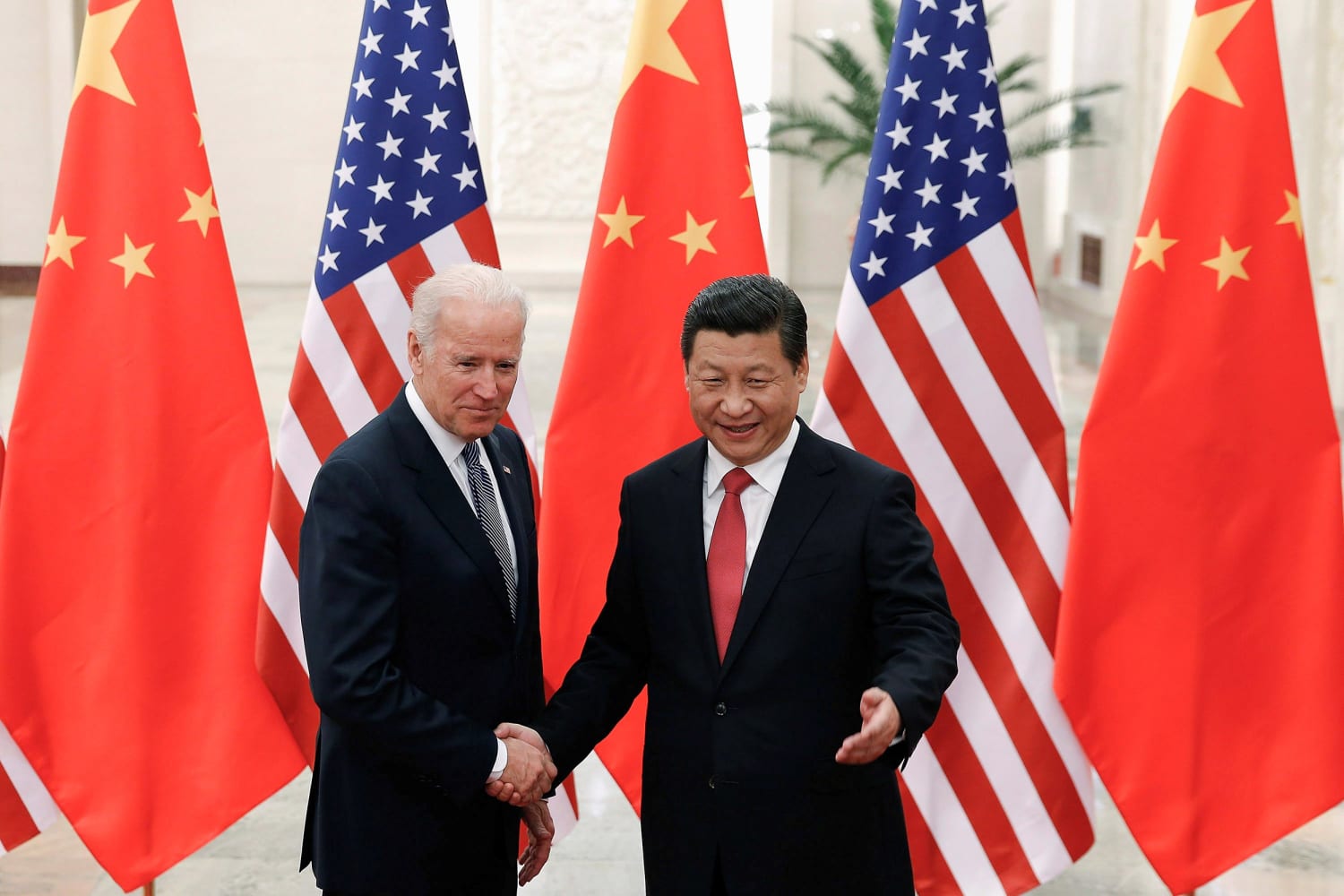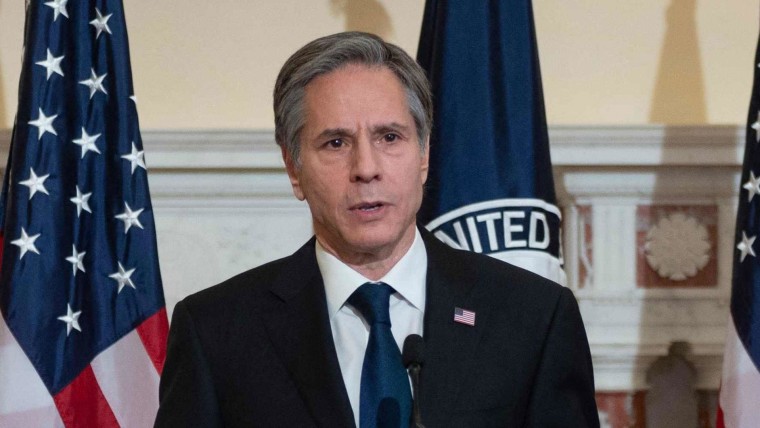President Joe Biden will take part in the first leaders’ summit of the informal international alliance known as the “Quad” on Friday as his administration steps up efforts to deal with China’s growing influence.
The group, which also includes India, Japan and Australia, will be meeting virtually due to coronavirus restrictions.
The White House said the summit would highlight the importance Biden places on the Indo-Pacific region.
Climate change, Covid-19 vaccines and technology are all on the agenda — but don’t mention China. Each country has been at pains to make clear this is not an anti-Beijing club.
“It was established not to counter one single threat or to focus on one single issue,” State Department spokesman Ned Price told reporters on Thursday, but “to showcase what democracies can deliver together, both for our own populations and for the broader world.”
Download the NBC News app for breaking news and politics
Despite these protestations, the alliance is widely viewed as an effort to combat Beijing’s growing military and economic power.
“It’s a group of countries all concerned about China, and all trying to hold the line for an open, democratic non-Chinese way forward,” author and China analyst Bill Hayton told NBC News.
However, he added, the “Quad” is not a formal alliance in the same way as NATO and thus carries no strict duty to defend one another.
Representatives for the four members of the “Quadrilateral Security Dialogue” met sporadically after it was formally established in 2007.
But the group was revived by former President Donald Trump, whose Secretary of State Mike Pompeo attended meetings as Washington sought to reinvigorate the alliance amid escalating tensions with Beijing.
Relations between the world’s two largest economies have deteriorated with clashes over trade, Covid-19, Hong Kong’s autonomy, Taiwan and alleged human rights abuses in Xinjiang.
In a sign that the Biden administration will continue to take a tough stance, Secretary of State Antony Blinken labeled China America’s “biggest geopolitical test of the 21st century.”
It’s not just the U.S. that has been clashing with China, however.
India, Australia and Japan have all faced security challenges of their own, strengthening their interest in the four-nation alliance.
Japan has had long-standing grievances over contested islands and maritime claims, while Indian and Chinese troops engaged in deadly border clashes over disputed territory in the Himalayas last year.
Australia has faced trade pressures from Beijing and Prime Minister Scott Morrison said Friday the “Quad” meeting was “an historical moment” and an opportunity to “create a new anchor for peace and stability in the Indo-Pacific.”
The group’s revitalization also gained a boost last year after India invited Australia to join naval exercises with it, the U.S. and Japan.
For the group to offer an effective counter to an increasingly assertive Beijing, said China analyst Hayton, the Biden administration should try to offer more than just security heft. Instead it should look to match the “full spectrum engagement” that China offers to countries in the region, such as aid and vaccines, which were all “utterly lacking under the Trump period,” he added.
To that end the leaders are expected to announce a plan to boost India’s coronavirus vaccine manufacturing capabilities, which comes as China continues to pursue its own policy of so-called vaccine diplomacy throughout the world.
“The idea that you can somehow contain China is just ridiculous but I think it’s a way of trying to make sure that China doesn’t set the agenda totally,” Hayton added.
Unsurprisingly, Beijing is not a fan of the alliance.
Chinese officials have not directly commented on Friday’s meeting but have previously denounced the group and warned against “exclusive cliques.”
“To Beijing, this is all bad news,” said Michael Shoebridge, director of defense, strategy and national security at the Australian Strategic Policy Institute, a thinktank.
“The Quad’s agenda…is exactly the kind of multilateral cooperation Beijing fears and finds hard to orchestrate.”
The virtual summit comes amid a U.S. diplomatic flurry in Asia.
Blinken and Defense Secretary Lloyd Austin will visit Japan and South Korea next week in a push to solidify key alliances. And Japan’s prime minister, Yoshihide Suga, will travel to the U.S. to meet Biden in April.
Blinken and national security adviser Jake Sullivan will also meet with top Chinese officials next week in Alaska, the first high-level in-person contact between the two countries since Biden took office.
Chinese foreign ministry spokesman Zhao Lijian told press on Thursday that Beijing hoped Washington would move relations back onto a “healthy and stable” track.
He said China was asking the U.S. to “reject the Cold-War and zero-sum game mentality, respect China’s sovereignty, security and development interests and stop interfering in China’s internal affairs.”
Abigail Williams and Carol E. Lee contributed.
Source: | This article originally belongs to Nbcnews.com











